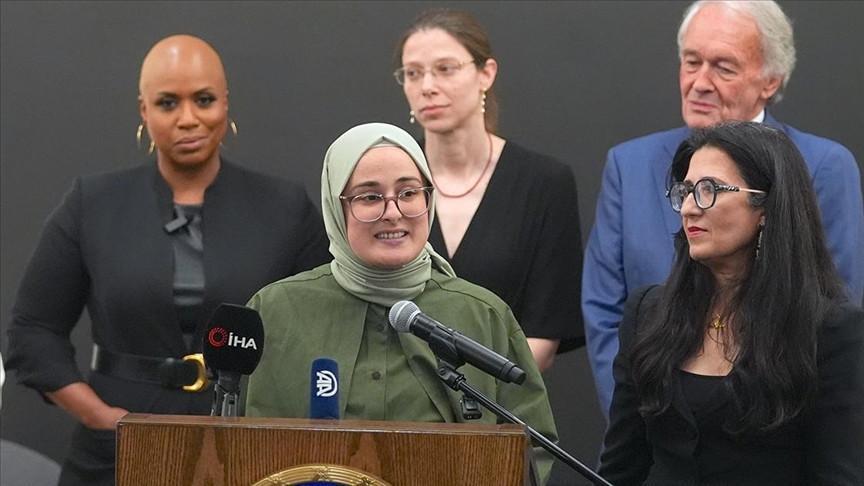
A U.S. federal appeals court heard arguments Tuesday for Turkish student Rumeysa Öztürk, detained in March by immigration authorities over an op-ed she co-authored criticizing Israel's assault on Gaza.
"Ms. Öztürk was held behind bars for six weeks for writing an op-ed, and that never should have happened," said Esha Bhandari, deputy director of the ACLU Speech, Privacy and Technology Project, in an online briefing after the hearing.
"The government is asking the court to be the first to ever hold that there is no access to judicial review if the government weaponizes immigration detention authority to keep someone locked up simply for exercising their free speech rights. Our argument is that of course, the courts have a role to play when individuals’ liberty and freedom of speech are at stake," she added.
"There's no reason that Rumeysa Öztürk should be in detention," Bhandari said.
Öztürk's message, read at the briefing, said her op-ed urged Tufts University to listen to students and recognize the Palestinian genocide.
She called writing "one of the most peaceful methods of communication and ways of taking action" and "the heart of freedom of expression."
"Unbelievably, it was my writing, a single opinion piece published in our student newspaper, that led to my arrest and ultimately landed me in a damp, crowded, and inhumane ICE for-profit prison for 45 days," she said.
"As my case continues to move forward, I am grateful for the outpouring of support, and expect to see the basic principles of our democracy prevail," Öztürk added.
Öztürk, a Fulbright scholar and PhD student in child development at Tufts, was arrested March 25 by plainclothes ICE agents outside her Somerville home. The incident was caught on video.
Her student visa was revoked by the State Department. She spent six weeks in a Louisiana ICE center before a Vermont federal judge ordered her release May 9, citing her asthma and lack of grounds for detention.
The detention came after pro-Israel site Canary Mission targeted her for the March op-ed in The Tufts Daily, slamming the university's response to Israel's Gaza assault, which has killed over 66,000 Palestinians.
The court also heard the case of Mohsen Mahdawi, a Palestinian Columbia University graduate student. He claims his visa revocation and detention are part of targeting noncitizen activists for Palestinian rights.
No ruling has been issued in either case.